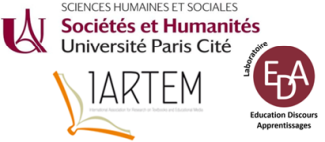This study aims to predict the future of the textbook in the post-digital age. This research will illustrate potential scenarios for textbook use in the next 15 to 20 years by identifying major trends that will have a significant impact on future schooling and curriculum after the digital transformation. This study is followed by two research projects of mine focusing 1) on the contemporary textbook system in other countries and 2) on the digital textbook in some advanced countries (i.e., Estonia, Denmark, the Netherlands, Korea, Singapore, etc.) conducted by the Japan Textbook Research Center. While the textbook remains a key medium in schooling, the digital transformation has led to a diversification of educational media and raised questions about its role in education. The concept of post-digital assumes the inclusion of analog elements in digital contexts. This assumption suggests that the textbook will soon shift from paper-based to digital devices-based that are always connected to the internet. In the face of digital transformation, will both analog and digital textbooks be used in schools? Or will paper textbooks be replaced by open learning materials? Or will the textbook maintain a common place of learning with a national curriculum against the individualizing conditions of learning? To answer these questions, experts are expected to participate in two rounds of “Future Delphi Survey” to provide their predictions on the major future trends in schooling and textbooks. The Delphi surveys will include members of IARTEM, the Pacific Circle Consortium of Educational Studies (PCC), and representative experts from Japan. Based on the survey results, several possible scenarios for the future textbook will be constructed and shared at the IARTEM 2026 conference. This poster presentation at the IARTEM 2024 aims to find and invite volunteer members to join and support this research project.

 PDF version
PDF version
